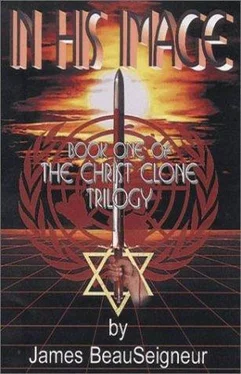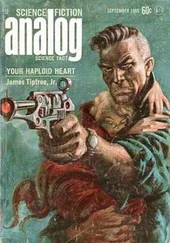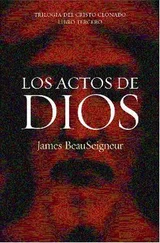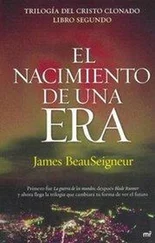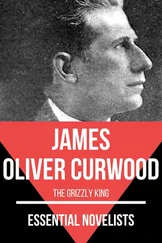The stark evidence of famine and drought which the Secretary-General's party saw first hand in Pakistan was mirrored by similar devastation in northern India, where wheat rust had severely reduced the annual harvest. In southern India, tropical storms during the monsoon season had driven seawater into many of the already flooded areas to form brackish water, making the land salty and unarable. The latter was a fairly common occurrence in India and all that could be done was to try to grow whatever they could and wait for subsequent monsoons to leach the salt from the land over the next few years.
The helicopter landed in an open area outside the camp, creating a huge dust cloud that blew in the faces of those waiting. Along with the twenty or so cameramen and reporters, the relief camp's director, Dr. Fred Bloomer, waited for the blades to stop before approaching to welcome the Secretary-General and his party. Christopher, the only one on board who knew Dr. Bloomer, made the introductions. "I'm anxious to get started," Hansen said as he shook Bloomer's hand.
"I fear you'll find conditions worse than you imagined, Mr. Secretary-General," Dr. Bloomer said. "We've had nearly a thousand new arrivals in the last four days. We're just not set up to handle this many people. We've had to severely reduce rations." To feed the people in the camp, the kitchen operated with a full contingent on a fourteen hour shift throughout the daylight hours. During the night, a skeleton crew was on hand for any who had just reached the camp – a single hour in some cases could make the difference between life and death. Dr. Bloomer's goal was to provide two meals a day for everyone in the camp.
The official purpose of the visit was 'fact finding,' but what Hansen really hoped to accomplish was to build support for the distribution of agricultural resources. He had specific reasons for inviting each of those who accompanied him on this trip. Ambassador Khalid Haider from Pakistan was there because it was his country. The Indian ambassador had been invited because of similar problems in his country and because of the concern that the refugees from Pakistan might begin to spill over into India.
The other members from North America and Europe had been asked to come along because it was their regions that Hansen's plan would ask to give the most for the food distribution effort. Ambassador Howell of Canada, who represented North America on the Security Council, had been ill for several months and was expected to resign soon. In his place was Ambassador Walter Bishop from the United States, the Alternate from North America who hoped to replace the Canadian Ambassador as Primary. Aware of this likelihood, Hansen wanted to take the opportunity to get to know the American better and win his support for the plan. Ambassador Heineman from Germany, who represented Europe on the Security Council, really didn't need to be convinced about the need for food redistribution, but the people of his region did. At Decker's recommendation Hansen had invited Heineman to ensure coverage of the trip by the European press. It was an effective way of making sure that the people of Europe learned of the urgency and magnitude of the need.
The team started with a tour of the camp and what was left of the surrounding villages. In the afternoon Christopher briefed the ambassadors on the findings from a study by the Food and Agriculture Organization on projections for future years. Later in the afternoon, in what was mainly a photo opportunity, the team members worked in the serving line for the evening meal. The team spent the night at the camp under nearly the same conditions as the camp's inhabitants.
The next morning the Secretary-General and the ambassadors planned to fly by helicopter back to Lahore, Pakistan, near the Indian border, while Decker and Christopher remained at the camp to represent Hansen to a second team from the U.N. who would be arriving in the late afternoon.
July 4, 2019 – Tel Aviv, Israel
Rabbi Saul Cohen finished his morning prayers and rose to his feet to answer the knock at the door of his study. Benjamin Cohen, the rabbi's seventeen-year-old son and only living relative since the Disaster took his four older children and wife, stood outside, nervously shifting from side to side. Benjamin Cohen knew not to disturb his father's prayer time without good cause, and he did not relish comparing his own evaluation of what constituted a 'good cause' with that of his father's. Nevertheless, he relished even less the possibility of angering the man who waited in the sitting room.
The man – 'guest' hardly seemed like the right word – had arrived without appointment. Benjamin had opened the front door to let him in but then backed away, sensing instinctively that there was something very unusual about this visit, if not about the man himself. As the man closed the door behind him, it seemed to Benjamin that the sitting room had grown strangely crowded. He was only too glad to leave the room to retrieve his father, and was halfway to his father's office before he realized he had not asked the man his name. Like it or not, he would have to go back and ask.
Peering around the comer of the doorway, Benjamin's eyes met those of the visitor. He wanted to look away, but he saw something there which held him. He could see clearly now what so unsettled him about this man. Benjamin had been trained to discern wisdom in a man's face. He had been taught that wisdom came with age, but the wisdom in this man's eyes was unnatural for a man no older than this. Benjamin discerned a depth of wisdom that would be unnatural for a man of any age. He asked the man his name. The answer only added to Benjamin's disquiet, but he felt it unadvisable to probe further.
Ordinarily Saul Cohen's morning prayers lasted at least an hour, but for some reason this morning he stopped after only thirty minutes. When he heard the knock on his study door at that very moment, it seemed to him a confirmation. He did not know what news Benjamin brought, but he was sure it was important or the boy would not have interrupted him. Cohen opened the door.
"What is it?" he asked, with no sign of the consternation Benjamin had expected.
"There's a man here to see you, Father."
Cohen waited for more information but Benjamin was not forthcoming. "So what is this man's name?" Cohen asked finally.
"He didn't say," Benjamin responded, in a muffled voice.
"Well, did you ask him?"
"Yes, Father."
"And, what did he say?"
Benjamin wasn't sure how this was going to sound. It seemed very authoritative when the man in the sitting room said it, but coming from his own lips, Benjamin thought it might sound a little dumb. Still, he had to say something: his father was waiting. "He said to tell you that he is 'he who has heard the voices of the seven thunders.'"
Cohen did not respond but the look on his face registered recognition. Finally he managed a nod and Benjamin went back to the sitting room to retrieve the man.
Saul Cohen closed the door and mechanically began to straighten his desk. A few seconds later, he heard footsteps coming down the hall and watched as the doorknob began to rotate. Suddenly it seemed as though he had forgotten how to breathe. Benjamin pushed the door open, and Cohen, remembering his manners, managed to move around from behind his desk to meet the man. If this man was, indeed, who he claimed to be, then Cohen had no desire to insult him with bad etiquette. For a moment, the man stood in the doorway just looking at Cohen as if savoring the moment, and then finally he entered.
Cohen didn't know how it could be possible for this man to be who he claimed, but in Cohen's vocation he had learned that nothing was impossible. He had known since the Disaster that there was to be a prophet who would someday come. But could this man really be who he claimed to be? It was almost more than Cohen could accept.
Читать дальше
